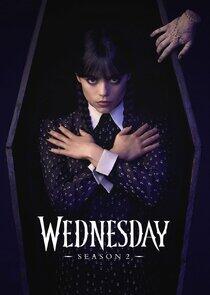Beer

Gregg Wallace is in Burton upon Trent at Britain's biggest brewery, where they produce 3 million pints of beer a day. He follows the production of Britain's best-selling lager from raw barley to finished cans. Along the way he gets to grips with brewing terms like mash, wort, grist and coppers, and learns how 0.2 millilitres of yeast is enough to make 1.3 million pints alcoholic. In this high-volume factory he marvels at a machine that can fill 165 cans in just 5.5 seconds.
Meanwhile, Cherry Healey is learning how four basic ingredients – water, malted barley, hops and yeast – can be manipulated to make dark, heavy ales, light, fragrant lagers and everything in between. She is also uncovering the secrets of the perfect pint in a scientific study which shows that drinking beer from a curved glass makes it taste fruitier, while a frothy head and a higher temperature also improve flavour. Which is a win for the traditional British warm pint.
Historian Ruth Goodman is asking why Burton became the centre of brewing in Britain in the 19th century. The answer is that it is all in the water. The hard water there was perfect for brewing flavourful stouts and porters. While its position on the canal network made it ideally placed to transport finished beer round Britain and beyond. She is also finding out how beer got its stereotypically blokey reputation, despite the fact that brewing was traditionally a female profession. It is all down to the introduction of hops in the 15th century, which turned beer making from a cottage industry into an industrialised process.
Trailer
Recently Updated Shows

48 Hours
48 Hours is a CBS news magazine that investigates intriguing crime and justice cases that touch on all aspects of the human experience. Over its long run, the show has helped exonerate wrongly convicted people, driven the reopening -- and resolution -- of cold cases, and changed numerous lives. CBS News correspondents offer an in-depth look into each story, with the emphasis on solving the mystery at its heart. The program and its team have earned critical acclaim, including 20 Emmys and three Peabody Awards.

Invasion
Earth is visited by an alien species that threatens humanity's existence. Events unfold in real time through the eyes of five ordinary people across the globe as they struggle to make sense of the chaos unraveling around them.

Wednesday
Smart, sarcastic and a little dead inside, Wednesday Addams investigates a murder spree while making new friends — and foes — at Nevermore Academy.

Alien: Earth
When the mysterious deep space research vessel USCSS Maginot crash-lands on Earth, Wendy and a ragtag group of tactical soldiers make a fateful discovery that puts them face-to-face with the planet's greatest threat.

Peacemaker
This James Gunn-created series continues the saga of Peacemaker, a vainglorious superhero/supervillain who believes in peace at any cost — no matter how many people he has to kill. After a miraculous recovery from his duel with Bloodsport, Peacemaker soon discovers that his freedom comes at a price.